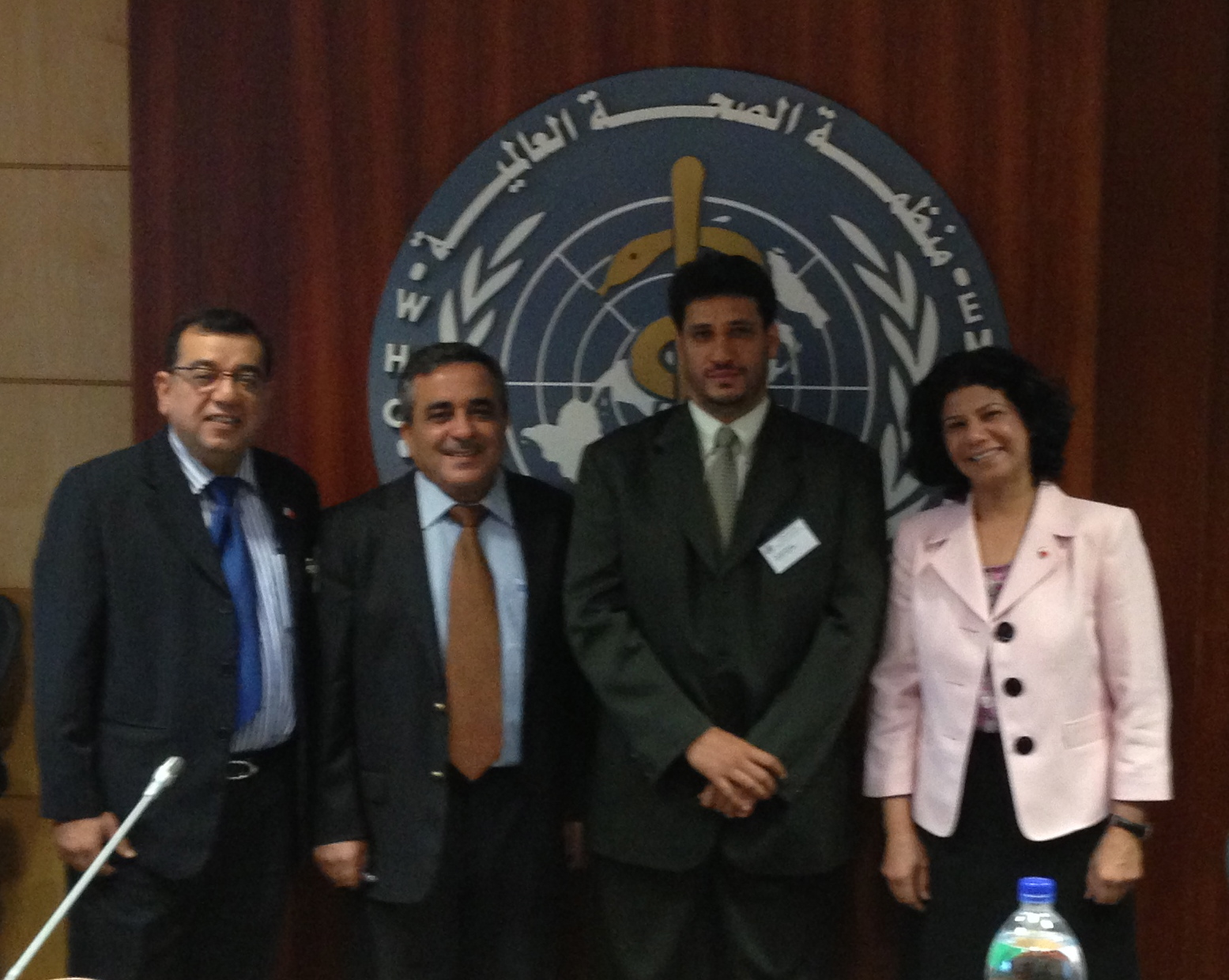Salt and Fat Intake Reduction Workshop - Cairo 11-12th April 2013

22/04/2013
A delgation from Bahrain headed by Dr. Dr. Nadia Mohamed Gharib - Chief of Nutrition Section - Public Health Directorate - Ministry of Health and accompanied by Mr. Mhammed Nass – General Manager of the Bahrain Flour Mills Company and Mr. Salah Al Meer, Head of Quality at BFM attend the WHO workshop on Salt and Fat Intake Reduction Workshop in Cairo 11-12th April 2013.
The workshop was headed by Dr Ala Alwan, WHO Regional Director for the Eastern Mediterranean - EMRO, and the sessions were facililated by Proffessor Philip James - Professor of Nutrition and Professor Graham MacGregor - World Action on Salt and Health and other Doctors from WHO-EMRO team.
The workshop was a a follow-up on the the Political Declaration of the United Nations General Assembly on the Prevention and Control of Non-communicable Diseases that tasked WHO and Member States with developing an action plan to reduce exposure to risk factors, including high salt and fat intake. A resolution (EM/RC59/R.2), adopted by the Fifty-ninth session of the WHO Regional Committee for the Eastern Mediterranean, urges Member States to “implement the core set of interventions in the regional Framework for Action”. These include reducing salt intake and replacing trans fat by polyunsaturated fat at population levels.
?
As indicated by Dr. Alwan, “Interventions to prevent noncommunicable diseases on a population-wide basis are readily available and are cost-effective. And the income level of a country or population is not a barrier to prevention. Low-cost solutions can work anywhere and will reduce the major risk factors for noncommunicable diseases. While many interventions may be cost-effective, some are considered “best buys” – actions that are evidence-based, cost-effective and feasible, and can be undertaken immediately to produce accelerated results in terms of lives saved, disease prevented and costs avoided. One such best buy is to reduce salt and fat intake.”
“The overall objective of the workshop is to assist those Member States interested, and committed, to develop and implement a national action plan on salt and fat intake reduction. The expected outcomes of the workshop are: guidance on the way forward particularly in relation to specific and targeted interventions and enhanced intersectoral coordination” Dr. Alewan stated.
The workshop was headed by Dr Ala Alwan, WHO Regional Director for the Eastern Mediterranean - EMRO, and the sessions were facililated by Proffessor Philip James - Professor of Nutrition and Professor Graham MacGregor - World Action on Salt and Health and other Doctors from WHO-EMRO team.
The workshop was a a follow-up on the the Political Declaration of the United Nations General Assembly on the Prevention and Control of Non-communicable Diseases that tasked WHO and Member States with developing an action plan to reduce exposure to risk factors, including high salt and fat intake. A resolution (EM/RC59/R.2), adopted by the Fifty-ninth session of the WHO Regional Committee for the Eastern Mediterranean, urges Member States to “implement the core set of interventions in the regional Framework for Action”. These include reducing salt intake and replacing trans fat by polyunsaturated fat at population levels.
?
As indicated by Dr. Alwan, “Interventions to prevent noncommunicable diseases on a population-wide basis are readily available and are cost-effective. And the income level of a country or population is not a barrier to prevention. Low-cost solutions can work anywhere and will reduce the major risk factors for noncommunicable diseases. While many interventions may be cost-effective, some are considered “best buys” – actions that are evidence-based, cost-effective and feasible, and can be undertaken immediately to produce accelerated results in terms of lives saved, disease prevented and costs avoided. One such best buy is to reduce salt and fat intake.”
“The overall objective of the workshop is to assist those Member States interested, and committed, to develop and implement a national action plan on salt and fat intake reduction. The expected outcomes of the workshop are: guidance on the way forward particularly in relation to specific and targeted interventions and enhanced intersectoral coordination” Dr. Alewan stated.
Comments
Currently there are no comments.
Login to add comment


